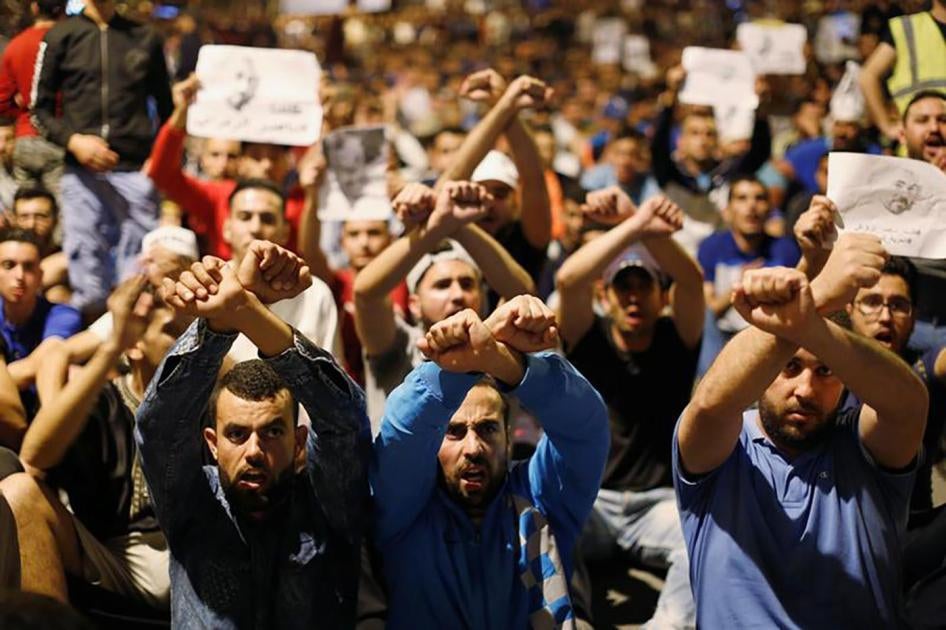(Tunis) – Demonstrations in Morocco’s Rif region, the most sustained street protests the country has seen since the Arab uprisings of 2011, showed the limits to Morocco’s tolerance of free speech and the right of peaceful assembly, Human Rights Watch said today in releasing its World Report 2018. Morocco should release all imprisoned peaceful protesters and abolish penal code provisions that allow the government to jail people for expressing their views.
Protests began in the restive northern Rif region in October 2016. The authorities tolerated the protests for several months, but violently detained protest leaders in May 2017 and banned a major rally announced for July. Since then the government has imprisoned journalists and others for participating in, or supporting, “illegal” demonstrations.
Authorities frequently tolerated protests held in front of parliament in Rabat and elsewhere, but almost never in Morocco-controlled Western Sahara, where police came out in force to pre-empt any gathering deemed sympathetic to self-determination for that disputed territory.
“There are spaces to express dissent in Morocco, but when it comes to sustained and mass protest, the police and the judiciary tend to shut down protests and neutralize activists in short order,” said Sarah Leah Whitson, Middle East and North Africa director at Human Rights Watch. “If Morocco is to set itself apart from the region’s downward trend on rights, it needs to release all Rif protesters detained or convicted for nonviolent assembly or speech.”
In the 643-page World Report, its 28th edition, Human Rights Watch reviews human rights practices in more than 90 countries. In his introductory essay, Executive Director Kenneth Roth writes that political leaders willing to stand up for human rights principles showed that it is possible to limit authoritarian populist agendas. When combined with mobilized publics and effective multilateral actors, these leaders demonstrated that the rise of anti-rights governments is not inevitable.
While the 2016 Press and Publications Code eliminated prison sentences for speech offenses, many live on in the penal code, including for crossing Morocco’s “red lines”: “causing harm” to Islam, the monarchy, the person of the king and the royal family, and “inciting against” Morocco’s “territorial integrity.” In July, Hamid Mahdaoui, a journalist, was sentenced to a year in prison for “inciting” participation in an “unauthorized” demonstration in the Rif. Others went to prison for posting their support for such protests on social media.
Moroccan courts regularly admit evidence of confessions allegedly extracted through physical abuse or that were in some way falsified, without thoroughly and credibly investigating whether they were obtained improperly.
In the year’s most closely watched trial, a civilian court retried and convicted anew a group of 24 Sahrawi men, including some human rights activists, of complicity in deadly clashes that took place in Western Sahara in 2010. The court sentenced the men to between 20 years and life in prison on the basis of scant and contested evidence, including confessions that they withdrew in court.
Morocco should ensure fair trials for all those who contend their confessions were coerced.
On some other issues, Morocco took positive steps. It continued to recognize, de facto, the refugee or asylum-seeker status of foreigners in Morocco, when the United Nations Refugee Agency conferred it on them. It also granted one-year renewable residency permits both to Syrians and to thousands of sub-Saharan economic migrants.
Morocco should act on pending draft laws procedures for granting asylum and for curbing domestic violence. It should also develop strong implementation mechanisms in anticipation of the entry into force in 2018 of a 2016 law protecting domestic workers.








